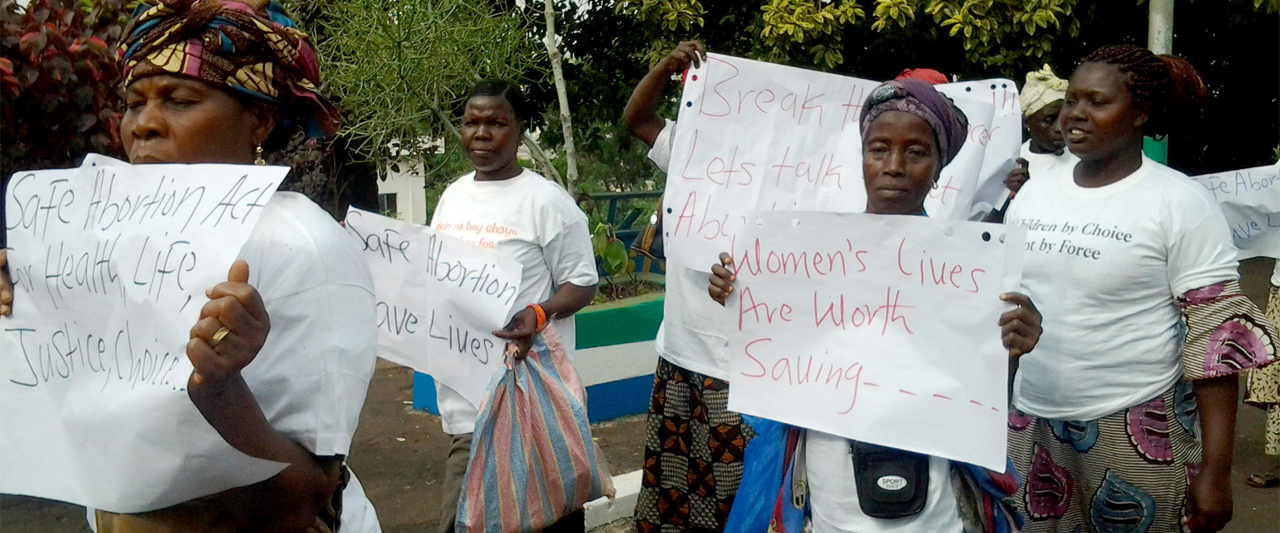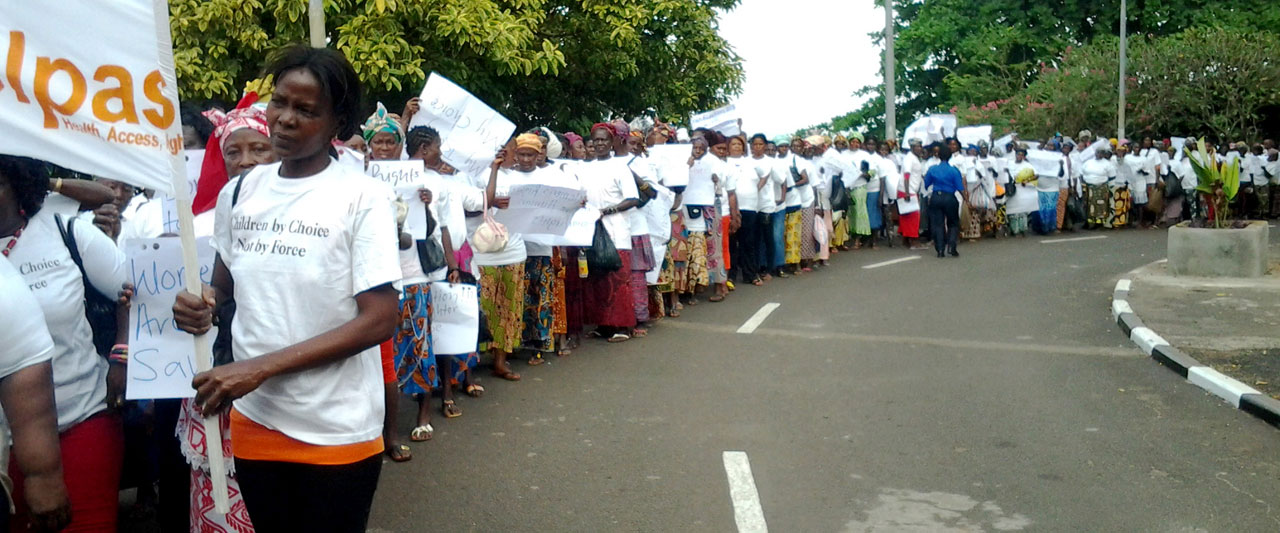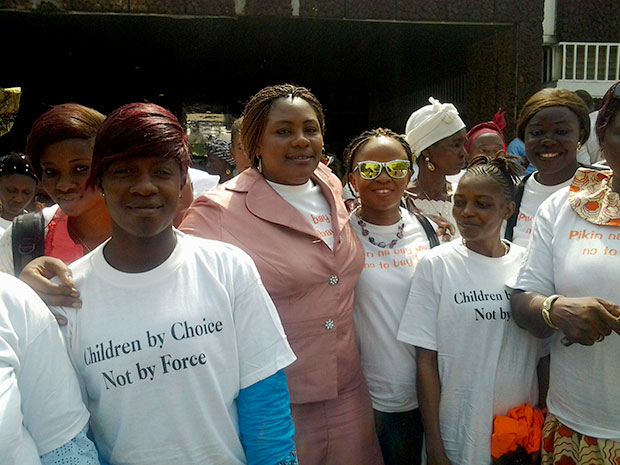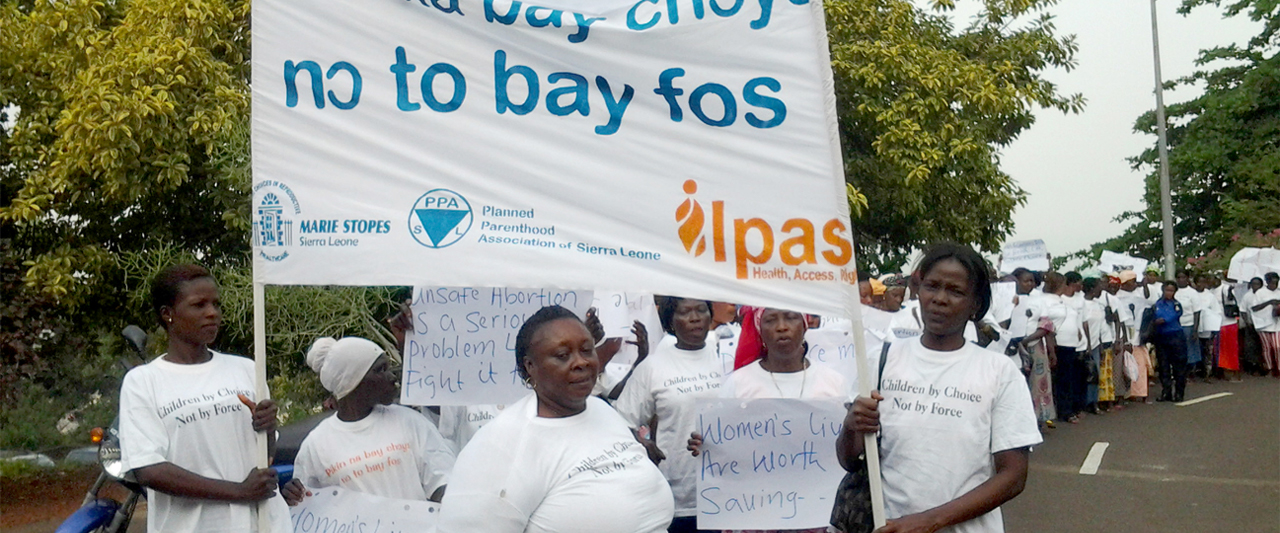Update, Jan. 31, 2017: Due to pressure from opposition actors, the president refused to sign this bill into law and it died. Work continues to pass legislation to save women’s lives and protect their rights.
Today in Sierra Leone, the country’s parliament voted in favor of a new abortion law that will make safe abortion legal. There was overwhelming support, with no opposition votes. According to the World Health Organization, Sierra Leone has the highest maternal mortality ratio in the world, including significant contribution from unsafe abortion.
Honorable Isata Kabia brought forward a private member’s bill last week in Parliament. She cited the 2014 Convention on the Elimination of All Forms of Discrimination against Women (CEDAW) Committee review in which the committee noted with concern the country’s high maternal mortality and the highly restrictive abortion law. The CEDAW review also noted that the law ignored the high incidence of sexual violence and unwanted pregnancy that often result in unsafe abortions—which account for 30 percent of Sierra Leone’s maternal mortality.

“Mr. Speaker, Honorable Members, these are women in the prime of their lives who most likely have other children and families to take care of. Yet unsafe abortion is one of the main causes of maternal mortality that can be most easily addressed, through improved access to family planning, information and services, safe, legal abortion services and high-quality postabortion care,” said Kabia before the final vote.
Sierra Leone has signed or ratified almost all international and national treaties and optional protocols that are designed to protect human rights, including the AU Women’s Protocol, which specifically calls for countries to protect women’s health and rights by increasing access to safe abortion.
“The evidence is clear. Legal restrictions on abortion only make abortion unsafe, which leads to higher maternal mortality,” says Val Tucker, former Ipas Country Manager in Sierra Leone. “Practically everyone in Sierra Leone knows someone who has been affected in some way by unsafe abortion—people have lost wives, daughters, and loves ones. This bill has the power to change things for the better,” she adds.

In 2010, a Law Reform commission reviewed the existing law and recommended law reform. Also, before the last Presidential election, there was an attempt to reform the bill which progressed but never made it to a vote, notes Tucker.
In 2011, the Ministry of Health and Sanitation partnered with Ipas to conduct three studies examining unwanted pregnancy and unsafe abortion, revealing that unwanted pregnancy and unsafe abortion were identified in all regions as a significant problem. The studies—which included assessments of the burden and cost of unsafe abortion—found that the Sierra Leone government spent between $112,000 and $230,000 (USD) each year on personnel and medical supplies to treat postabortion cases. If the government provided safe abortion, by contrast, the government could save $121,000 (USD).
In 2012, a number of government leaders and stakeholders visited Ethiopia to study that country’s successful law reform and safe abortion implementation process. The Ethiopian government officials, health-care providers and civil-society leaders stressed the significant benefits of abortion law reform for women’s health and lives, as well as for the health-care system. In voicing their strong commitment to providing safe abortion, doctors, nurses and midwives in particular attested to the positive changes they had seen in Ethiopia after revision of the law. As one doctor noted, “We don’t see the tragedy of severe abortion complication and death any more in this hospital, it has become something of the past.”

“This news makes Sierra Leone a real leader in the growing trend of progressive abortion law reform in Africa,” says Charlotte Hord Smith, Ipas Policy Director. “With Mozambique’s law reform of last year and efforts in other countries to review their restrictive laws, we are seeing great progress toward respecting women’s reproductive rights and protecting their health in the region.”
For more information, contact [email protected]


